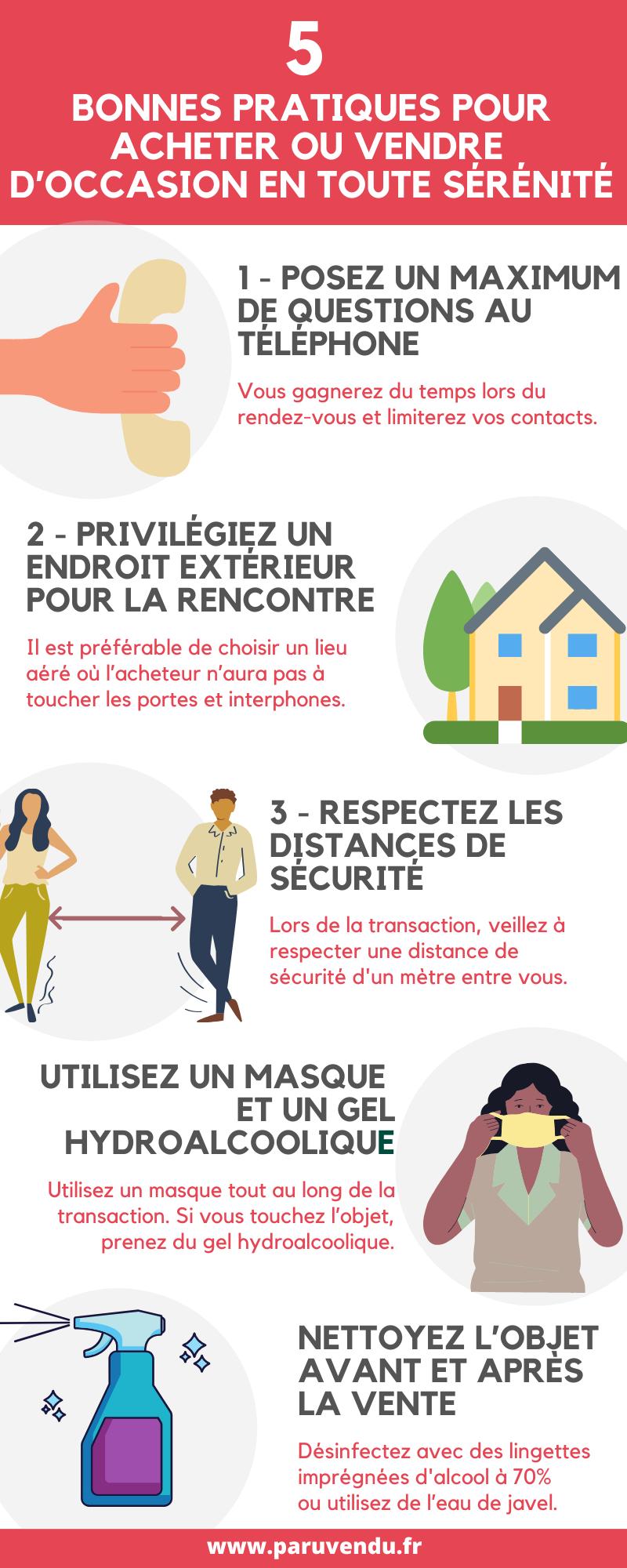Conso: 4 rules for buying second-hand safely
Surfing on responsible consumption, the opportunity has gone from a marginalized mode of purchase to a trendy sector. In 2020 alone, this market generated more than 7.4 billion euros, according to a recent study by the firm Xerfi Precepta, more than half of which came from the Web.
But if demand continues to increase and the growing online and in-store offer promises a flourishing future, individuals sometimes have unpleasant surprises... While scammers and negligent sellers abound on the classifieds platforms, it is necessary to open your eyes.
Spot shady deals
A deal too good to be true is 9 times out of 10 a scam. As a buyer, the first instinct must therefore be to check market prices, then eliminate suspicious ads, especially those offering luxury or high-tech items at knockdown prices.
On the seller's side, do not follow up on potential buyers who are ready to pay more than the price displayed because this practice actually hides a scam by means of payment.

Ask the seller
It is imperative to obtain as much information as possible about the coveted object and its condition. When was it acquired? Are there any flaws, signs of wear and stains not seen in the listing photos? Is it an electronic device still under warranty and, in this case, is the invoice provided? If the seller is too evasive in their answers, move on.
During your exchanges, take the opportunity to detect very bad syntax or major spelling mistakes, which are often the sign of a scammer working abroad. The two interlocutors must be transparent, without revealing sensitive information. It is better to go through the platform's messaging system rather than giving your personal e-mail address.
Prioritize direct contact
The official online scam reporting site Cybermalveillance.gouv.fr recommends contacting the seller or buyer directly. It starts with a simple phone call to talk about the product in person, knowing that most scammers prefer to chat to avoid being found. Similarly, it is always simpler and safer to favor the acquisition of items sold in your area so that you can go there to check their condition, then pay in person and collect your purchase at the same time.
Securing the means of payment
But you don't always find happiness close to home. As soon as you have to carry out a transaction remotely, you must be extra vigilant. The majority of scams take place at the time of delivery or payment. Whether you are a buyer or a seller, you must therefore refuse all unsecured methods of payment. Exit checks, money transfer by Western Union-type money order or by recharge coupon like Neosurf, PCS or Transcash.
As for bank transfers, they must come from a French bank. Ideally, go through a secure payment service like PayPal or use the protected system now in place by classified ad sites.
EconomyConso: How do private sales work?EconomyConso: Clothing rental boomingFavorite targets
It is necessary to differentiate the negligent individuals from the real crooks. According to specialists, these mainly target high-tech equipment, household appliances or even rare goods. We are most often talking about objects worth between a few hundred euros and up to around 1,500 euros. The amount must indeed not be too high not to arouse the suspicions of the authorities.
Also legion, used car scams can cost victims several thousand euros. In addition to the usual advice, it is a question of carefully examining the vehicle and making sure of its maintenance history thanks, for example, to the official online service Histovec set up by the Ministry of the Interior. Better yet, go through a platform that secures the transaction and which will offer you additional guarantees (vehicle test, several-month operating guarantee, etc.).
0 comments 89 shares









Find out how to remove the tartar on your dog's teeth
Under what conditions can you have an inflatable jacuzzi on its terrace or balcony?
Grass mower a perfect lawn!
What are the measures in the dart game